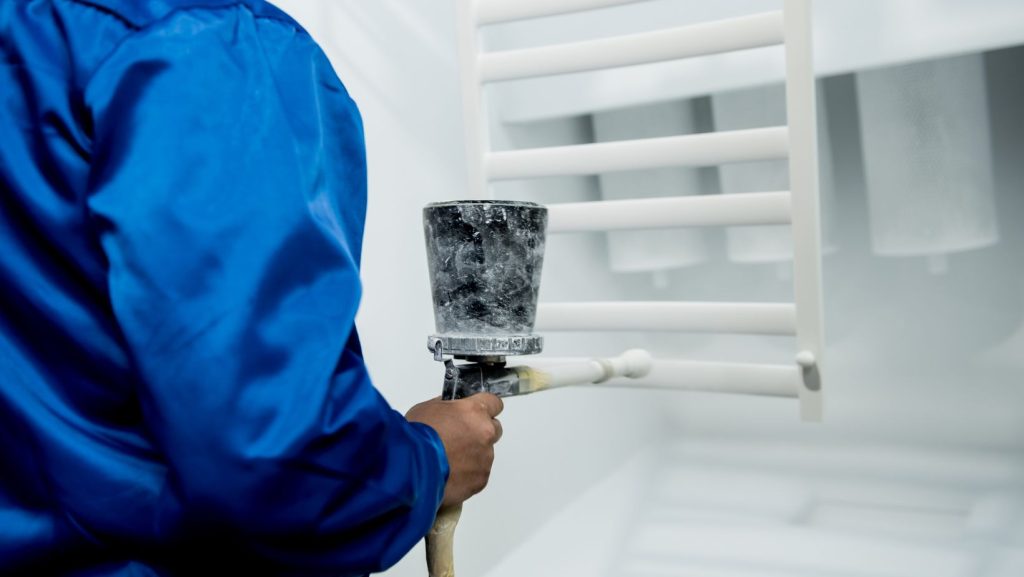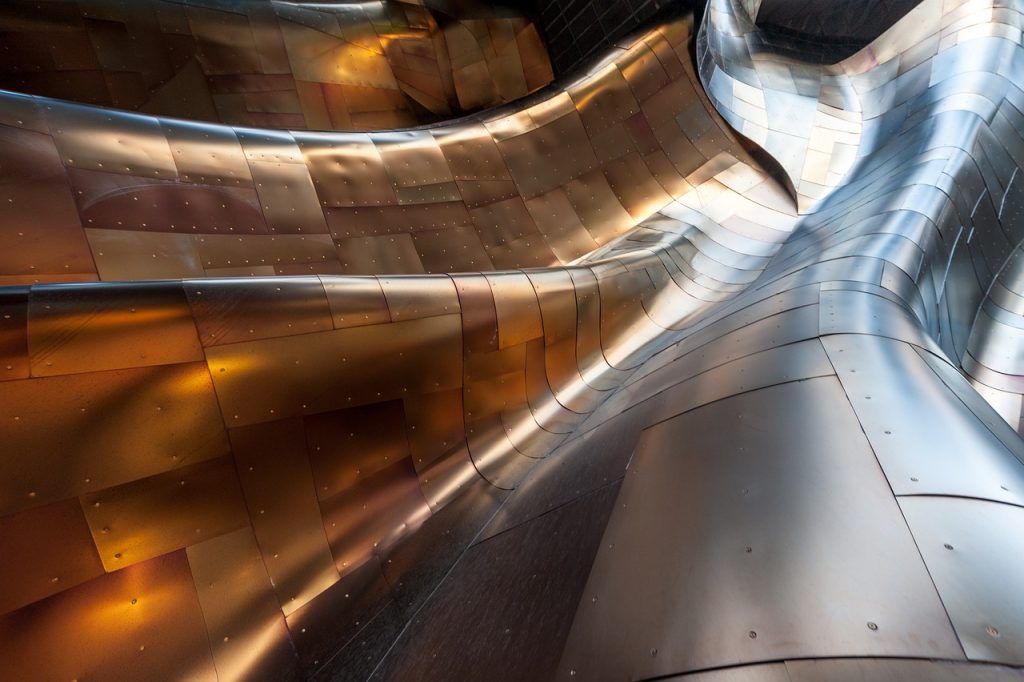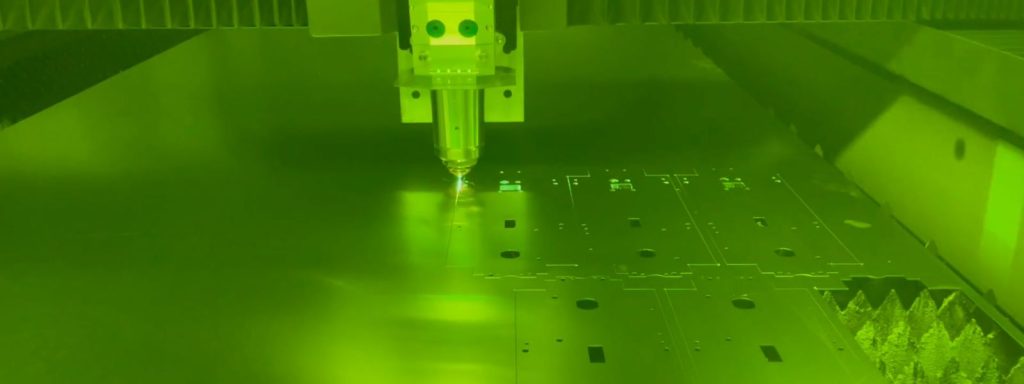The final finish of a metal component is more than just a surface treatment—it’s a statement of durability, aesthetics, and performance. Powder coating has become one of the most widely used finishing methods in modern manufacturing due to its excellent resistance to corrosion, wear, and environmental stress. Available in a wide range of colors, textures, and gloss levels, powder coating offers both visual appeal and long-term protection across industries like electronics, medical, aerospace, and industrial equipment.
But not all powder coatings are created equal. Understanding the different finish types—such as matte, gloss, wrinkle, and textured—as well as how they pair with advanced printing techniques like silk screening and digital UV printing, can make all the difference in achieving both function and branding goals. In this guide, we break down the most popular powder coating finishes and explore the custom printing options available to bring your metal components to life with precision and style.
What’s Powder Coating In A Nutshell?
Powder coating is a dry finishing process that applies a fine, electrostatically charged powder to a metal surface, which is then cured under heat to form a durable, protective layer. Unlike traditional liquid paint, it contains no solvents and creates a thicker, more uniform coating without drips or runs.
The result is a tough, corrosion-resistant finish that stands up to impact, moisture, chemicals, and UV exposure—making it ideal for both indoor and outdoor applications. Powder coating is also environmentally friendly, offering minimal waste, no VOC emissions, and high material efficiency through reclaimable overspray.
Types of Powder Coating
Simply put, there are two main types of powder coating, thermosets and thermoplastics.
Thermosets form chemical bonds whenever they are heated and cured, while thermoplastics do not, which allows them to be remelted and reshaped if needed.
What To Know About Thermosets
- These are perfect for high-heat applications because of their heat resistance.
- There is a chemical reaction during curing. In turn, it creates strong bonds to prevent melting.
- These cannot be recycled or remelted once cured.
- The application may become brittle as the thickness increases.
What To Know About Thermoplastics
- These can be remelted and reshaped because they do not form chemical bonds during the curing process.
- It has more flexibility and is suitable for applications with potential impact.
- These may be more pricey than thermosets.
Powder Coating Application Process
If you’re interested in how the powder coating process works, let’s take a look at how to prepare for the powder coating process.
Surface Preparation
Before powder coating, the metal surface must be thoroughly cleaned to remove contaminants like grease, dirt, or rust. Proper surface preparation ensures a high-quality finish and good powder coating adhesion. Aside from cleaning up the surface manually with something like a cloth, typically, experts use immersion cleaning, spray wands, recirculating spray washers, and more.
Application of Powder
The powder coating material, consisting of finely ground particles of resin, pigments, and other additives, is electrostatically charged. Charged particles are applied using electrostatic spray guns or fluidized bed systems, adhering uniformly to the grounded metal surface.
Techniques For Application
Electrostatic deposition (ESD) and fluidized bed powder coating. are two of the most common methods. For ESD, the powder is applied using a spray gun, creating an electrostatic charge that helps draw the particles to the grounded substrate. The spray gun creates a charged cloud of powder. From here, the paint particles adhere electrostatically to the piece and form a layer.
Powder Coating Booth
In the powder coating booth, charged powder particles are sprayed onto the metal part. The electrostatic attraction ensures that the powder clings to the surface. Excess powder is collected and recycled for further use.
Curing
After application, the metal part is transferred to a curing oven where heat melts the powder particles, causing them to flow and chemically bond. This process creates a smooth and continuous coating. The curing temperature ranges from 350°F to 450°F (175°C to 230°C).
Advantages of Powder Coating
Powder coating offers numerous benefits that make it a preferred choice for finishing metal parts across industries. This section highlights the key advantages.
Super Durable
Powder coatings provide a robust finish resistant to chipping, scratching, and fading. This durability makes it ideal for applications in harsh environments and frequent handling.
Aesthetically Pleasing
Powder coating offers a vast range of colors, textures, and finishes, giving designers the flexibility to enhance the visual appeal of metal parts. The electrostatic powder application ensures even and consistent coating thickness, eliminating issues like runs or sags in the finish.
Cost-Effective
This method is generally more cost-effective than traditional liquid painting, particularly for large-scale production runs, making it an economical choice for manufacturers.
Environmentally Great
This is an eco-friendly option as it is reusable and recyclable. Powder coating powder is also used precisely with minimal wastage, unlike paint, where you experience a lot of oversprays. Powder coating does not release volatile organic compounds that may harm the environment.
Disadvantages of Powder Coating
To be fair, we want to make sure we go over the disadvantages of powder coating as well. Although it’s less of a traditional approach than painting to creating polished finishes, powder coating can come with its disadvantages.
Powdered by Electric Charge
Compared to paint, any powder coat will need some sort of electric charge to work. If you’re familiar with the paint process and finishing, that just needs an adhesive.
Coating Is Tricky
When powder coating with a desired thickness in mind, it’s tough to control how thick a coat is applied, which affects the overall texture at the end of the day.
Possible Color Cross-Contamination
We discussed the environmental benefits of powder coating, but that reusability and recycling of the product can also lead to cross-contamination. So, any colors that you have in mind, may not come out exactly as planned.
Printing Methods: Applying Designs, Logos, and Graphics
Powder coating focuses on surface finishing, silk screening, pad printing, and digital printing, adding designs, logos, and graphics to metal surfaces. Each method caters to different requirements and applications. Let’s take a look at some of the processes that go side by side with powder coating.
Silk Screening (Screen Printing)
Silk screening, also known as screen printing, uses a mesh stencil to transfer ink onto a metal surface. A squeegee forces the ink through open areas of the stencil, creating the desired design.
- Best Applications: Suitable for flat or curved surfaces.
- Top Advantages: Ideal for simple designs, logos, or patterns in multiple colors.
Pad Printing
Pad printing transfers designs onto metal surfaces using an offset process. A silicone pad picks up ink from a plate and presses it onto the surface.
- Best Applications: Best for irregular or uneven surfaces.
- Top Advantages: Capable of printing detailed designs, small text, and intricate logos.
Digital Printing
Digital printing directly transfers designs from a digital file to the metal surface. Inkjet technology ensures precision and quality.
- Best Applications: Perfect for high-quality, full-color graphics and variable data printing.
- Top Advantages: Fast and efficient for short to medium runs with customization capabilities.
FAQs on Powder Coating Finishes
Let’s take a look at some of the most frequently asked questions when it comes to the powder coating process.
How does powder coating work?
Powder coating uses a dry, electrostatically charged powder sprayed onto a surface. The coated item is then baked in an oven, where the powder melts and forms a smooth, durable finish.
How durable is powder coating?
Super durable! Powder coating resists chipping, scratching, fading, and rust, making it a long-lasting choice for many surfaces.
What are the different types of powder coating finishes?
There are tons of options! Popular finishes include matte, gloss, satin, textured, and metallic, so you can achieve the look you want.
What’s Your Next Powder Coating Project?
The choice between powder coating and printing methods depends on specific project needs and the desired outcome for metal components. Both processes offer unique advantages that enhance the functionality and appearance of precision sheet metal parts.



